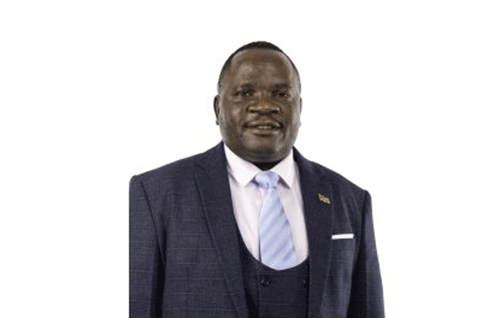Lahja Nashuuta
Independent Patriots for Change (IPC) lawmaker and shadow environment minister Likando Rodrick Liwela has urged the government to increase compensation for those affected by human-wildlife conflict.
In his maiden speech in the National Assembly, Liwela welcomed the recent improvements to the Human-Wildlife Conflict Self-Reliance Scheme, which increased compensation for livestock losses from N$5 000 to N$8 000 per unit for cattle.
“This is an encouraging step,” he said. However, he pointed out that this new figure does not adequately reflect the true worth of quality livestock.
“For many farmers, a good bull or cow is actually worth much more. While N$8 000 is a step towards (achieving) fairness, it still falls short of representing the actual value of prime livestock. Moreover, no financial compensation can truly make up for a human life lost,” he added.
With the ministry getting a budget of N$797.6 million this year, Liwela insisted that more resources are needed to deal with the escalating issue of human-wildlife conflict, which continues to affect numerous rural communities.
“This challenge is personal to me. In Zambezi, I have witnessed families grieving for lost loved ones and the devastation of crops. This is not limited to Zambezi; it’s a national issue,” he remarked.
He added: “Last year, we saw incidents across various regions: two lions wandered from Bwabwata National Park, attacking livestock and injuring a man; in the Omusati region, two men succumbed to separate elephant attacks; and in just the first two months of this year, five Namibians lost their lives to crocodile attacks along the Okavango River, with several others injured.”
He went on: “We cannot remain silent or indifferent. Each statistic is a life of great value. Every incident underscores the delicate balance our rural citizens maintain while attempting to earn a living alongside wild animals. Even the minister recognises that human-wildlife conflict impacts both rural living and conservation efforts.”
Liwela added: “Namibia’s iconic wildlife —elephants, lions, hippos, and crocodiles — are the backbone of our tourism industry. However, for those farming in close proximity to these animals, they can represent a serious threat to their livelihoods. We need to seek equitable and sustainable solutions.”
Alongside compensation reform, he also called for prompt implementation of rural development initiatives, especially in the Zambezi region.
“I hail from Musanga, a rural area abundant in natural resources but historically neglected regarding infrastructure and development. We face the challenges of impassable roads and distant health facilities. Tragically, we have lost lives when moving patients (to health centres) in dugout canoes during floods,” he said.
-lnashuuta@nepc.com.na



